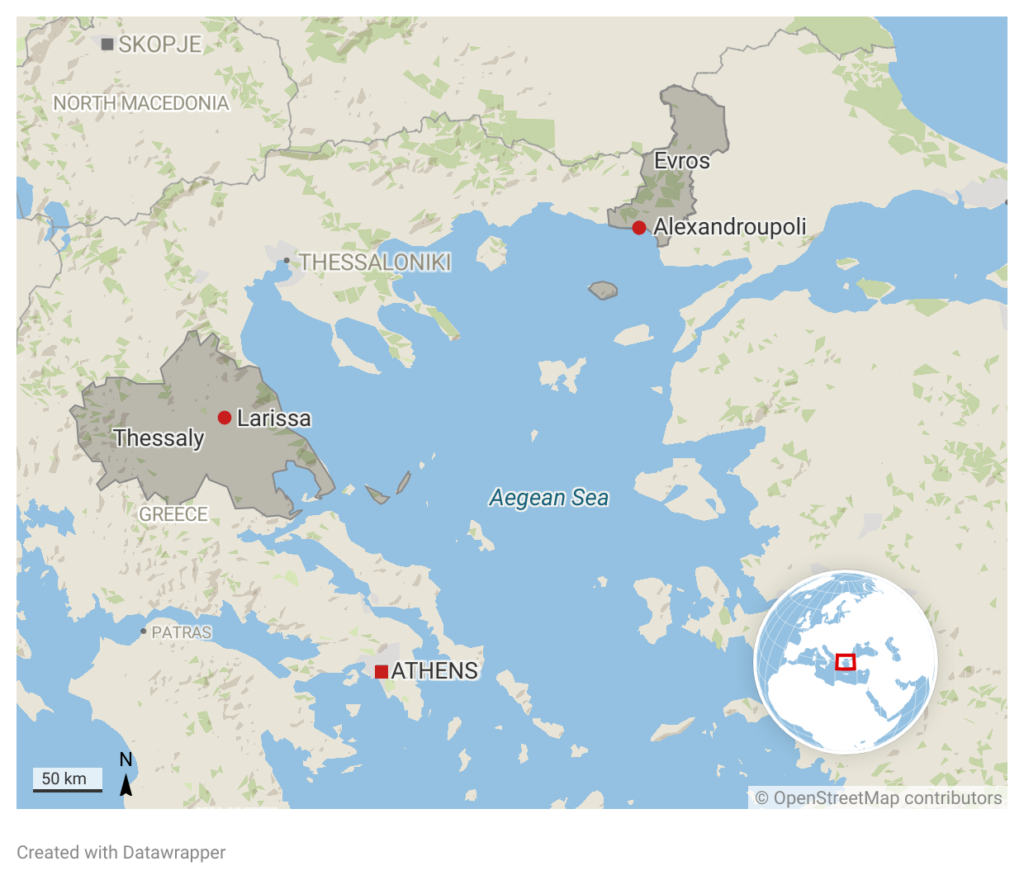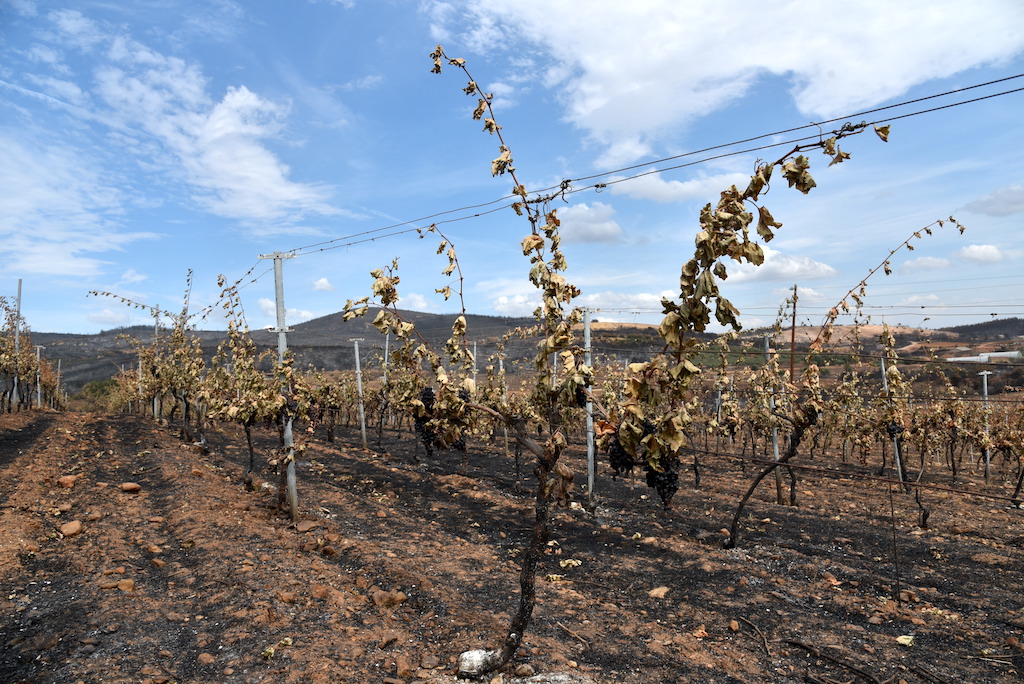Two billion euros! This can be the price of the sequence of climatic disasters that hit the nation between mid-July and mid-September, as estimated by Moschos Korasidis, managing director of the Nationwide Union of Agricultural Cooperatives of Greece. Giorgos Stratakos, secretary basic of the Greek ministry of agriculture, agrees: ‘It’s a worldwide downside’.
Dadia (Evros), September 2023. A Canadair from the French Civil Safety group, on standby as a part of the European mutual help operation. Photograph: Fabien Perrier
The fires first ravaged the world round Alexandroupoli, the primary city within the agricultural area of Evros within the northeast of the nation. In addition they swept by the islands of Rhodes and Corfu, and the world round Mount Parnes, the inexperienced lung close to the capital Athens. Then the cyclones Daniel and Elias swept throughout the plain of Thessaly, the nation’s meals basket. After such devastation, what’s going to restoration take?

That is the query on the thoughts of Kiriaki Chatzisavvas, 37. A biologist by coaching, she left the pharmaceutical business to plant vines in Evros. ‘It used to be a little paradise here,’ she explains, pointing to the hillsides. ‘Now it’s a catastrophe.’ The vines are charred, the bunches of grapes withered, the bottom strewn with ashes. The 7-hectare property smells acrid. It would take her 5 to 10 years to get again to the identical degree of manufacturing.
This winegrower wonders whether or not she’s going to be capable of proceed her follow based mostly on ‘biodiversity’. She explains: ‘My approach was holistic, with little human intervention. I had even conducted an experiment with a beekeeper who had placed hives around the vines. Nature regained its balance.’ The fires that people failed to regulate worn out biodiversity, devastating vineyards, forests, farmland and olive groves.
Beekeepers are apprehensive. Michalis, 31, had round 200 hives that he managed to avoid wasting. ‘Honey production is my only source of income. Where are my bees going to feed when the fire has burnt everything?’
It is a main concern for Pavlos Georgiadis, an ethnobotanist from Evros who teaches at Hohenheim College in Germany: ‘The bees, which are essential for pollination, no longer have anything to eat even when the hives have been saved. In this situation, there is a risk of desertification. Fires have a huge impact on biodiversity! Thousands of olive trees have burnt down, arable land has been destroyed and animals have died in the flames.’ The researcher goes on: ‘Soil, air, water, biodiversity: everything is affected by these fires.’
Briefly, the whole ecosystem is in danger. ‘The biological health of the soil will be affected by floods and fires. It will be difficult to plant crops that are susceptible to soil-borne diseases because of the excessive moisture, as well as ‘root asphyxia’ as a result of extended flooding of the soil’, explains Moschos Korasidis. In his view, ‘this degradation of vast tracts of farmland poses a serious threat to local and national food security. Shortages of essential crops may lead to increased dependence on imports, with negative repercussions for the country’s steadiness of commerce.’

Evros area, September 2023. Photograph: Fabien Perrier
That warning could seem exaggerated, however the figures give an concept of the shortages and value rises that now hang-out Greece. In Evros, fires burnt 94,000 hectares, nearly half of them forests. 8,114 hectares of farmland have been ravaged, 55.6% of the area’s whole. Even centuries-old olive bushes are in peril. Thessaly, which accounts for nearly 15% of the nation’s agricultural land (over 400,000 hectares), is a veritable agricultural reservoir and a wheat bread basket. Thessaly additionally produces 7% of the nation’s sugar beet, 50% of its processed tomatoes and peas, 30% of its cotton and barley, 20% of the hay utilized in livestock farming, and a big proportion of its fruit and greens.
It’s a mainstay of meat, milk and cheese manufacturing. Moschos Korasidis warns: ‘We also have disasters in stored products, such as cereals’. In his view, ‘between a considerably reduced supply of foodstuffs on the market and serious problems due to speculation, the conditions are ripe for price rises’. After ten years of financial and monetary disaster, one other crunch is looming, this time over meals manufacturing.




